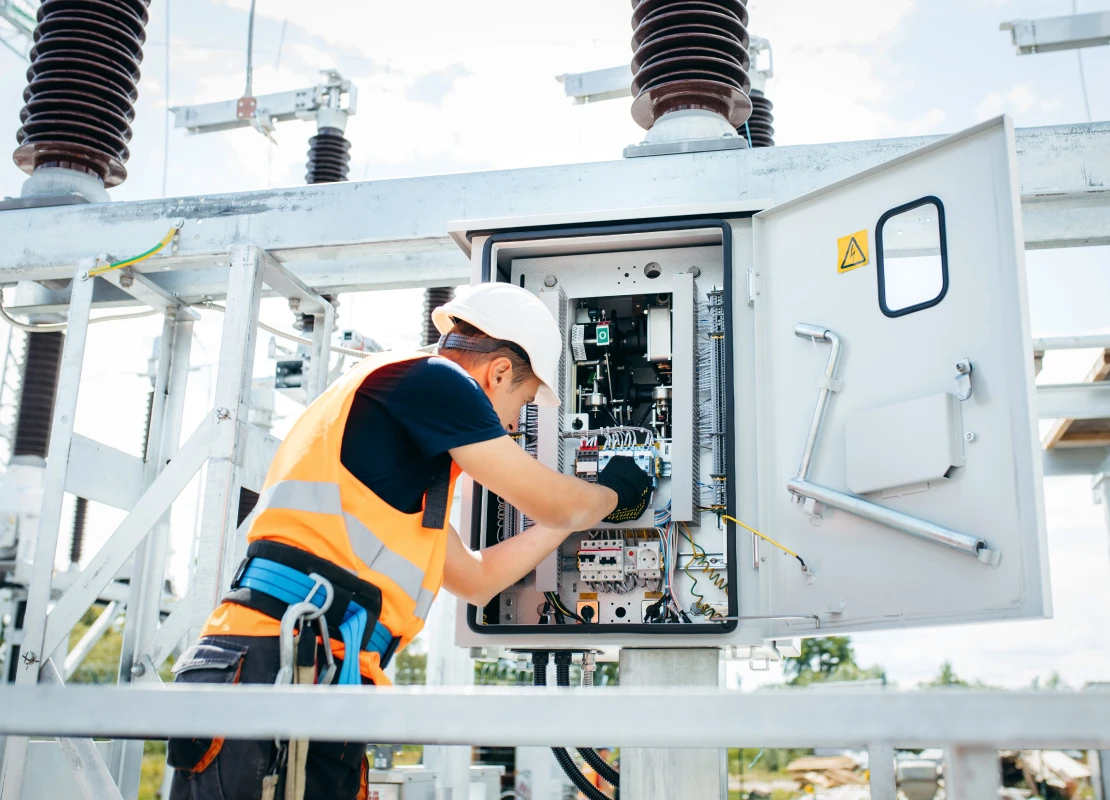Electrician Insurance in New Jersey

Comprehensive Protection for Electrical Contractors
Operating as an electrician in New Jersey involves navigating various risks, from on-site accidents to equipment damage. Ensuring your business is adequately insured is not only a legal requirement but also a crucial step in protecting your livelihood and building trust with clients. LG Insurance Agency can help you get comprehensive coverage at affordable rates.
Get a QuoteThe Importance of Electrician Insurance
Electricians are exposed to a wide array of risks every day, many of which can lead to costly lawsuits or business interruption. Working with high voltage systems, climbing ladders, handling power tools, and entering client homes or commercial properties all increase your exposure to liability. A single accident or injury could put your entire business in jeopardy if you’re not adequately protected.
Get a QuoteHow Insurance Safeguards Your Business
Insurance acts as a financial safety net, allowing your business to recover from unforeseen events without bearing the full cost out of pocket. It ensures that you can:
- Demonstrate professionalism and trustworthiness, especially to clients who require proof of insurance before awarding contracts.
- Cover legal fees and damages from lawsuits resulting from injury or property damage.
- Pay for employee injuries and comply with New Jersey’s strict workers’ compensation laws.
- Replace stolen or damaged tools quickly so work can resume without delay.
Boosting Client Confidence
Most commercial clients and general contractors will not work with uninsured subcontractors. Carrying the appropriate coverage shows that you are a legitimate and responsible business. It protects not only your clients and employees but also your reputation in the industry.
Get a Quote
Mandatory Insurance Requirements in New Jersey
-
General Liability Insurance:
New Jersey mandates that electrical contractors carry a minimum of $300,000 in general liability insurance. This coverage protects against third-party claims of bodily injury or property damage resulting from your business operations.
-
Workers’ Compensation Insurance:
If you employ staff, you’re required to have workers’ compensation insurance. This policy covers medical expenses and lost wages for employees injured on the job.
-
Surety Bond:
Electrical contractors must also obtain a $1,000 surety bond. This bond ensures compliance with state regulations and offers financial protection to clients in case of contractual breaches.
Recommended Additional Coverages
While New Jersey law sets minimum insurance requirements for electricians, many businesses opt for expanded protection to guard against a broader range of risks. Below are important optional policies you should consider:
-
Commercial Auto Insurance:
Electricians often use vans or trucks to transport tools, ladders, and materials. If you or your employees drive a vehicle for work, personal auto insurance typically won’t cover work-related incidents. Commercial auto insurance covers:
- Collision damage
- Theft or vandalism
- Liability from accidents caused during business use
- Uninsured/underinsured motorist coverage
Fleet coverage is also available if you operate multiple vehicles.
-
Tools and Equipment Insurance:
Power tools, testers, and other gear are not only expensive but essential to your business. This coverage, also known as inland marine insurance, protects against:
- Theft from job sites or vehicles
- Accidental damage during transport or use
- Equipment loss due to fire or weather
This is especially valuable for electricians who store tools in work trucks or regularly move between locations.
-
Professional Liability Insurance:
Even experienced electricians can face allegations of negligence, such as:
- Faulty system design
- Miscommunication of service scope
- Incomplete or improper documentation
Professional liability insurance, or errors and omissions (E&O) coverage, protects your business from claims of mistakes that result in financial loss—even when there’s no physical damage.
-
Cyber Liability Insurance:
If your electrical business manages client data, processes payments online, or uses smart home technology systems, you could be a target for cyberattacks. Cyber liability insurance can help cover:
- Data breach costs
- Legal fees
- Notification requirements
- Cyber extortion
As more electrical systems integrate with digital platforms, this coverage is becoming increasingly relevant.
-
Business Owner’s Policy (BOP):
A BOP combines several essential coverages into one package, making it cost-effective and easier to manage. Typically, a BOP includes:
- General Liability Insurance
- Commercial Property Insurance (for your office or storage)
- Business Interruption Insurance (lost income due to covered events)
BOPs are ideal for small-to-mid-size electricians who want broad protection under a single plan.
Factors Influencing Insurance Costs
Several key factors determine the cost of electrician insurance in New Jersey. Understanding these can help you manage premiums and make informed choices about your coverage:
- Business Size & Revenue: Larger operations face higher exposure and are likely to pay more due to greater potential for claims.
- Employee Count: More employees, particularly field staff, increase your workers’ compensation premiums.
- Service Types: Specialized or high-risk electrical work, such as industrial systems or high-voltage installations, may require more comprehensive (and costly) policies
- Claims History: A clean insurance record often results in better rates, while frequent claims signal risk to insurers.
- Location: Urban areas tend to bring higher premiums due to greater theft risk, client density, and traffic.
- Coverage Limits & Deductibles: Higher limits offer more protection but increase cost; opting for higher deductibles may reduce premiums.
- Experience & Safety Measures: Experienced electricians with documented safety training and no violations can benefit from reduced rates.
- Bundled Policies: Combining multiple policies under one insurer (like in a BOP) can qualify you for discounts.
On average, electricians in New Jersey can expect to pay:
- General Liability Insurance: $500–$1,200 annually
- Workers’ Compensation Insurance: Approximately $3,352 per employee annually
- Commercial Auto Insurance: $1,500–$3,050 per vehicle annually
- Tools and Equipment Insurance: $200–$2,000 annually
Steps to Obtain Electrician Insurance in New Jersey
- Assess Your Business Needs: Determine the types of coverage required based on your services and operations.
- Gather Necessary Information: Prepare details about your business, including the number of employees, annual revenue, and types of services offered.
- Purchase Policies: Select the policies that best fit your needs and budget.
- Compare Quotes: Reach out to multiple insurance providers to compare coverage options and premiums.
- Maintain Compliance: Ensure that your insurance policies remain active and meet state requirements to avoid penalties or license suspension.
Frequently Asked Questions (FAQs)
Yes, electrical contractors must carry a minimum of $300,000 in general liability insurance to operate legally in New Jersey.
It covers medical expenses and lost wages for employees who suffer work-related injuries or illnesses.
Yes, many insurers offer Business Owner’s Policies (BOPs) that combine general liability and property insurance, often at a discounted rate.
Maintaining a clean claims history, implementing safety protocols, and bundling policies can help reduce premiums.
If you use your personal vehicle for business purposes, it’s advisable to have commercial auto insurance to ensure adequate coverage.
Get a Quote
Protect your electrical business today. Contact us to get a personalized insurance quote tailored to your specific needs.